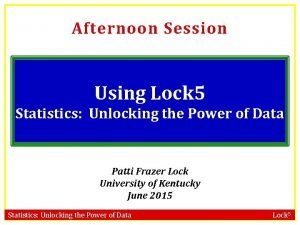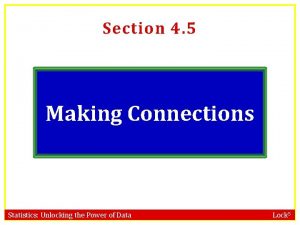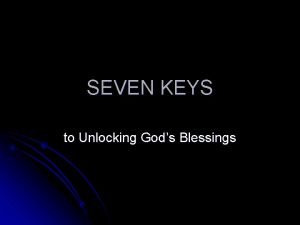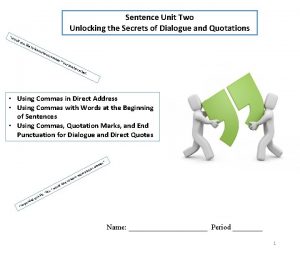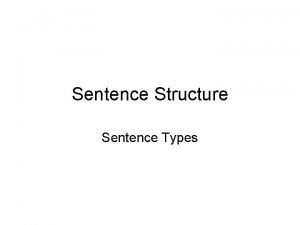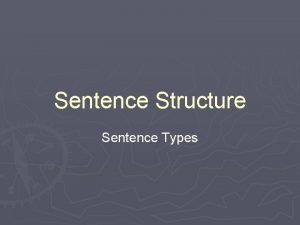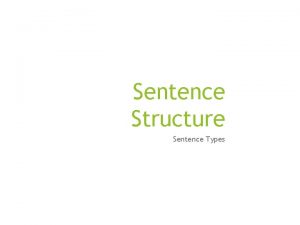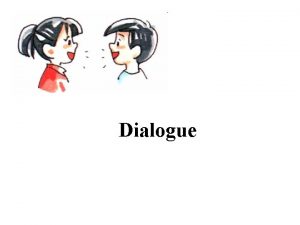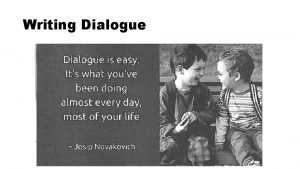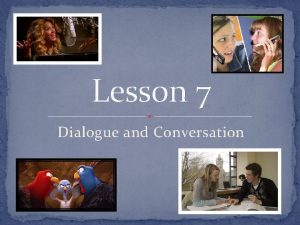Sentence Unit Two Unlocking the Secrets of Dialogue











- Slides: 11

Sentence Unit Two Unlocking the Secrets of Dialogue and Quotations “W oul d y ou like to l ear n a bou t co mm as? ” ou r te ach er a ske d. • Using Commas in Direct Address • Using Commas with Words at the Beginning of Sentences • Using Commas, Quotation Marks, and End Punctuation for Dialogue and Direct Quotes m com ut as. ” bo re a o m rn kly uic d q nde oul , I w s e , “Y lea to e v lo d spo I re Name: ___________ Period ____ 1

Essential Questions • How do writers vary sentence structure? • How can I use commas to create more interesting sentences? • How does the comma allow readers to judge rhythm, direction, pace, and flow of writing? • Why is the comma such a useful and necessary punctuation mark? • How do writers use commas in direct address situations? • How do writers use commas to set off words at the beginning of sentences? • How do writers use commas, quotation marks, and end punctuation when writing dialogue and direct quotes? • How do writers use dialogue effectively in writing? 2

Direct Address Lenny, I’ve been expecting you since Friday. We have been expecting you, Lenny. Of course, Lenny, we have been expecting you. Rule Use commas to separate a noun of direct address (the person being spoken to) from the rest of the sentence. 3

Direct Address Three sentences I found Three sentences I wrote 4

Words at the Beginning of Sentences Yes, I can always use additional hockey equipment. Well, that does it for this year. Anyway, there is no reason we can’t study harder. Rule Place a comma after words like oh, yes, and no at the beginning of a sentence. 5

Words at the Beginning Three sentences I found Three sentences I wrote 6

Dialogue at the Beginning of Sentences “Today must be Tuesday, ” she muttered. “What month is it? ” I asked. “Happy Fourth of July 4 th!” the announcer screamed. Rule Use quotation marks to set off the words of the speaker from the rest of the sentence. A comma is used after a declarative or imperative sentence within the quote. If the words being spoken are a question, end the quote with a question mark. If the quote is an exclamatory sentence, end the quote with an exclamation point. If you are explaining what someone said or thought but are not using the person’s exact words, do not use quotation marks. Ex. Jim told me long ago that he would move to Utah. Ex. I wondered if I would ever make it out of this jam. 7

Dialogue at the Beginning Three sentences I found Three sentences I wrote 8

Dialogue Ending a Sentence Then he asked, “How did you get here without a balloon? ” I replied, “We took an airplane. ” The commentator screamed, “The Yankees win!” Rule Use a comma and quotation marks to set off the words of the speaker from the rest of the sentence when dialogue is at the end of a sentence. If you are explaining what someone said or thought but are not using the person’s exact words, do not use quotation marks. Ex. Jim told me long ago that he would move to Utah. Ex. I wondered if I would ever make it out of this jam. 9

Dialogue Ending a Sentence Three sentences I found Three sentences I wrote 10

When Should I Use Dialogue? Is the dialogue realistic? Would the dialogue you are writing actually take place? Does it help tell the story? Ask yourself if you are using dialogue for a purpose or just using dialogue for the sake of using dialogue. Does the dialogue help explain your big idea? Example #1: “Odds or evens? ” Coach Fasulo asked, holding his right hand behind his back. “Odds, ” I said, which surprised everyone who knew me. It wasn’t just that I’d spoken first with such absolute confidence, but that I limited myself to a single syllable. Coach Fasulo held out the formerly hidden hand. His index finger pointed at me. I’d won first choice. I looked around the gym, tempted to pick the smallest first and strike a blow for the underdog. But I wasn’t that dumb. “I’ll take Red, ” I said. And even though I was the one doing the picking, it earned me a smile from Red that every kid just can’t help showing when he’s first chosen. Example #2 “Hi, Jen, ” said Sarah. Jen replied, “Hi, Sarah. ” “Where are you going? ” Sarah asked. “I am heading to school. Where are you going? ” Jen inquired. Sarah replied, “I am going to school too. ” Jen said, “Oh. ” Sarah said, “Sounds good. ” 11
 Unlocking the secrets of mohenjodaro
Unlocking the secrets of mohenjodaro Mohenjo daro weights and scales
Mohenjo daro weights and scales Unlocking the secrets of mohenjodaro
Unlocking the secrets of mohenjodaro Unlocking the secrets of the sun
Unlocking the secrets of the sun Congratulating expressions and responses
Congratulating expressions and responses Lock 5 stat
Lock 5 stat Unlocking behaviour change
Unlocking behaviour change Statistics: unlocking the power of data pdf
Statistics: unlocking the power of data pdf Long plantar ligament
Long plantar ligament Unlocking of knee joint
Unlocking of knee joint What is hilton's law
What is hilton's law Unlocking the door blessings of abraham
Unlocking the door blessings of abraham





